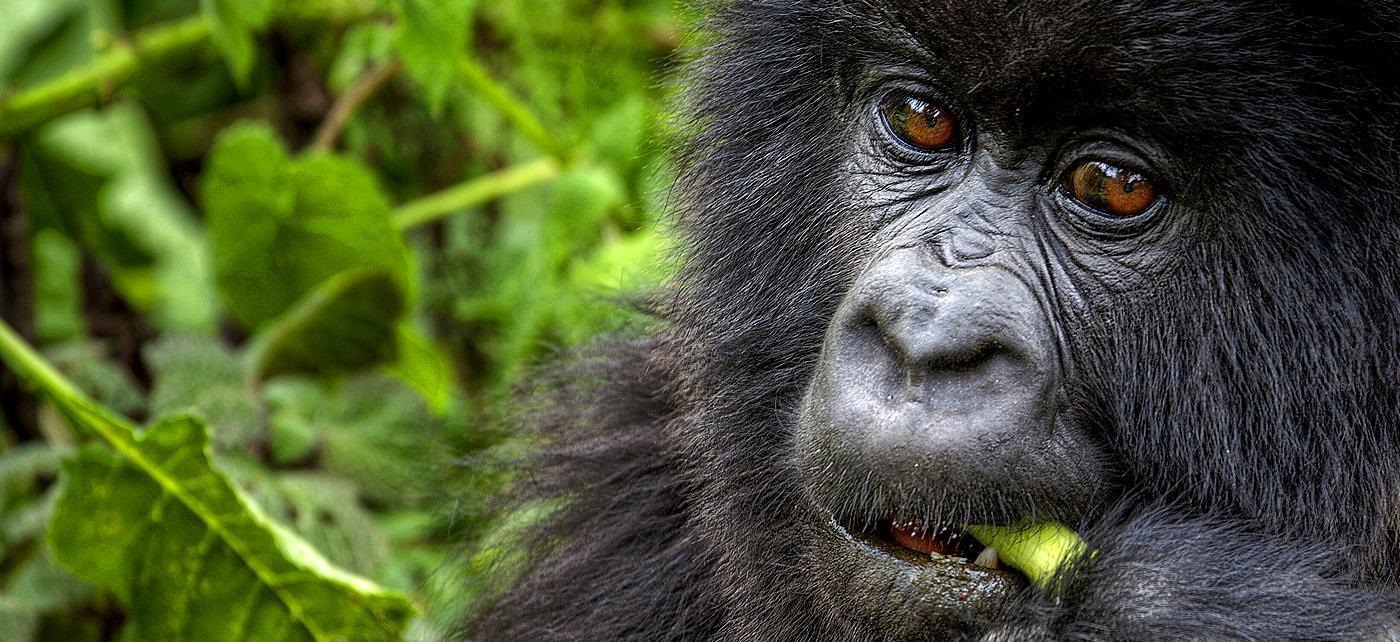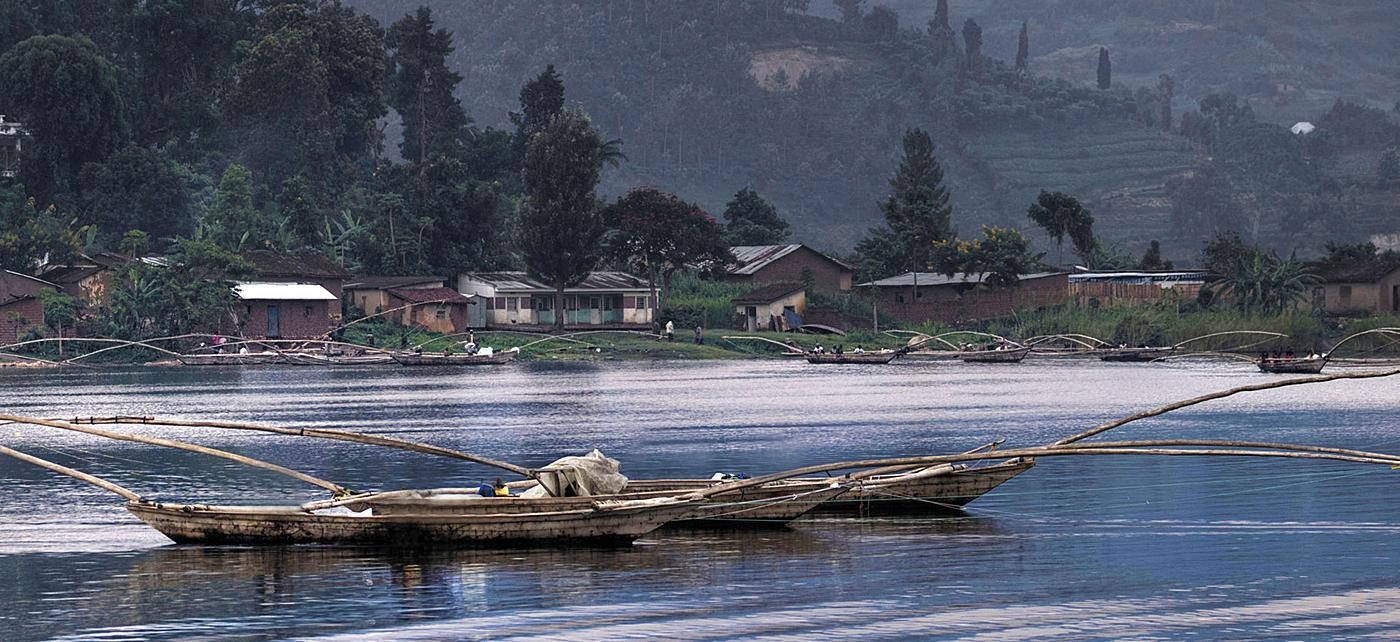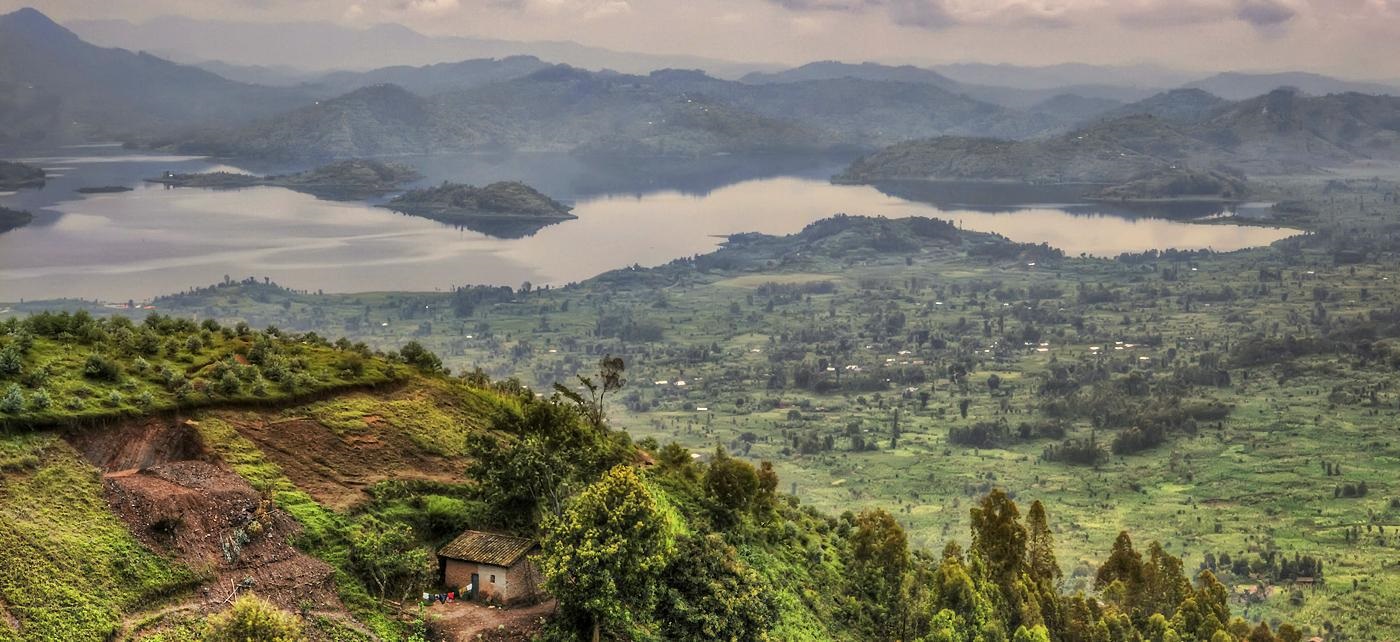Rwanda, officially the Republic of Rwanda, is a country in central and eastern Africa with a population of approximately 11.4 million (2011). Rwanda is located a few degrees south of the Equator, and is bordered by Uganda, Tanzania, Burundi and the Democratic Republic of the Congo. All of Rwanda is at high altitude, with a geography dominated by mountains in the west, savanna in the east, and numerous lakes throughout the country. The climate is temperate, with two rainy seasons and two dry seasons every year.
The population is young and predominantly rural, with a density among the highest in Africa. Rwandans form three groups: the Hutu, Tutsi, and Twa. These groups share a common culture and language and are classified as social groups rather than tribes. Christianity is the largest religion in the country, and the principal language is Kinyarwanda, spoken by most Rwandans. Rwanda follows a presidential system of government. The incumbent President is Paul Kagame of the Rwandan Patriotic Front (RPF). The government receives electoral support from across the community, and corruption levels are low relative to other Sub-Saharan African countries, although human rights organizations allege suppression of opposition groups.
Humans moved into what is now Rwanda following the last ice age, either in the Neolithic period around ten thousand years ago, or in the long humid period which followed, up to around 3000 BC. Archaeological excavations have revealed evidence of sparse settlement by hunter gatherers in the late Stone Age, followed by a larger population of early Iron Age settlers, who produced dimpled pottery and iron tools. These early inhabitants were the ancestors of the Twas, a group of aboriginal pygmy hunter-gatherers who remain in Rwanda today. Between 700 BC and 1500 AD, a number of Bantu groups migrated into Rwanda, and began to clear forest land for agriculture.
The forest-dwelling Twas lost much of their habitat and were forced to move on to the slopes of mountains. Historians have several theories regarding the nature of the Bantu migrations; one theory is that the first settlers were Hutus, while the Tutsis migrated later and formed a distinct racial group, possibly of Cushitic origin. An alternative theory is that the migration was slow and steady, with incoming groups integrating into rather than conquering the existing society. Under this theory, the Hutu and Tutsi distinction arose later and was a class distinction rather than a racial one.
Rwanda is a presidential unitary republic, based upon a multi-party system. The current constitution was adopted following a national referendum in 2003, replacing the transitional constitution which had been in place since 1994. The President of Rwanda is the head of state and has broad, unilateral powers to create policy, administer government agencies, exercise the prerogative of mercy, command the armed forces, negotiate and ratify treaties, sign presidential orders, and declare war or a state of emergency. The President is elected by popular vote every seven years, and appoints members of the Prime Minister and all other members of Cabinet. The incumbent President is Paul Kagame, who took office under the transitional government arrangements in 2000 and won elections in 2003 and 2010.
Rwanda has been governed by a strict hierarchy since precolonial times. Before colonisation, the King (Mwami) exercised control through a system of provinces, districts, hills, and neighbourhoods. The current constitution divides Rwanda into provinces (intara), districts (uturere), cities, municipalities, towns, sectors (imirenge), and cells (utugari), with each subdivision and its borders established by Parliament.


